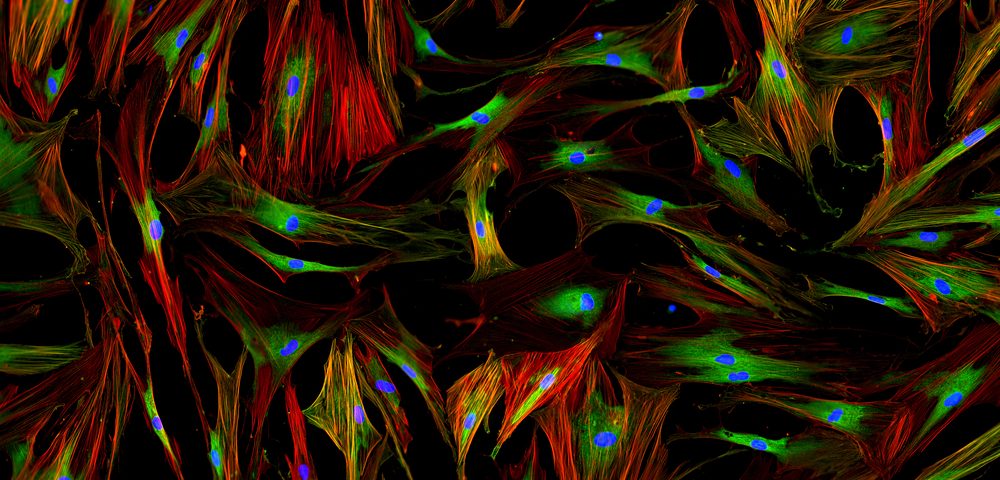PBI-4050, Prometic Life Sciences’ lead small molecule therapy candidate, targets a new antifibrotic pathway involving two receptors that play opposite roles in fibrosis development, researchers found.
The study, “A Newly Discovered Antifibrotic Pathway Regulated by Two Fatty Acid Receptors: GPR40 and GPR84,” appeared in the American Journal of Pathology.
Researchers investigated PBI-4050’s ability to bind to two receptors, called GPR40 and GPR84, known to be linked to metabolic regulation and inflammation but whose role in fibrosis was unknown until now.
The team used several animal models of kidney fibrosis that lacked either GPR40 or GPR84, and found that the two receptors played different roles in fibrosis — GPR40 had a protective effect while GPR84 had a damaging effect.
These findings were later confirmed in other models of fibrosis, including the liver, heart, lung, pancreas, and skin.
PBI-4050 binds to both receptors, but while it activates GPR40, it suppresses the activity of GPR84, which is potentially beneficial in treating fibrosis.
Researchers found that the binding of PBI-4050 to GPR40 and GPR84 reduces fibrosis by inhibiting the transition of fibroblasts, the most common cells of connective tissue, into pro-fibrotic cells called myofibroblasts.
“In studying the mechanism of action of PBI-4050, we have clearly demonstrated the contribution of two fatty acid receptors, GPR40 and GPR84, in the regulation of cells involved in fibrosis, including macrophages, epithelial cells and fibroblasts,” Lyne Gagnon, the study’s lead author and Prometic’s vice president of research and development preclinical, said in a press release.
“Our data show that GPR40 and GPR84 modulate fibrotic disease progression. Therefore, by targeting this novel antifibrotic pathway, PBI-4050 and its analogues have the potential to delay or even reverse the progression of fibrotic diseases,” Gagnon said.
Prometic Life Sciences is launching a Phase 3 clinical trial to test PBI-4050’s effectiveness as a therapy for idiopathic pulmonary fibrosis. Enrollment is expected to begin by mid-2018.
The therapy has been tested in animal models and also showed benefits in Phase 2 studies (NCT02538536) with IPF patients, as well as in type 2 diabetes patients with metabolic syndrome (NCT03081598), and patients with Alström syndrome (NCT03184584).
“We have seen the benefits of PBI-4050 in the treatment of fibrotic diseases. Now, having an understanding of the unique mechanism of action of PBI-4050, we are more confident than ever in its potential to help patients suffering from fibrosis-related conditions such as IPF and Alström syndrome,” said Pierre Laurin, CEO of Prometic.
“We look forward to initiating our Phase 3 pivotal clinical trial for PBI-4050 in IPF, expanding the program in Alström syndrome and to advancing follow-on analogues of PBI-4050 in clinical programs targeting other large fibrosis-related unmet medical needs,” Laurin added.


I am eagerly awaiting this help, plz plz hurry save lives!!!
Great job Prometic Life Sciences!
can this drug be used for systemic sceloderma patients with servre symtomatic disease with heart involvement . And how can we get to participate . I live in New Zealand But have a ruematologist In Australia.
I pray this drug will be available in south Africa!
When the trial will begin? Can I receive information about the follow up?
Thanks
Décio.
hope i don’t miss this phase 3 trial——keep us updated
I am a 82 year old male who has recently been diagnosed with Pulmonary Interstitial lung disease, and am interested in being part of the trial group for PDI 450. Please contact me, and send me the information I will need to complete in order to qualify.
Has anyone gotten an update?